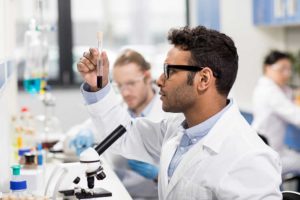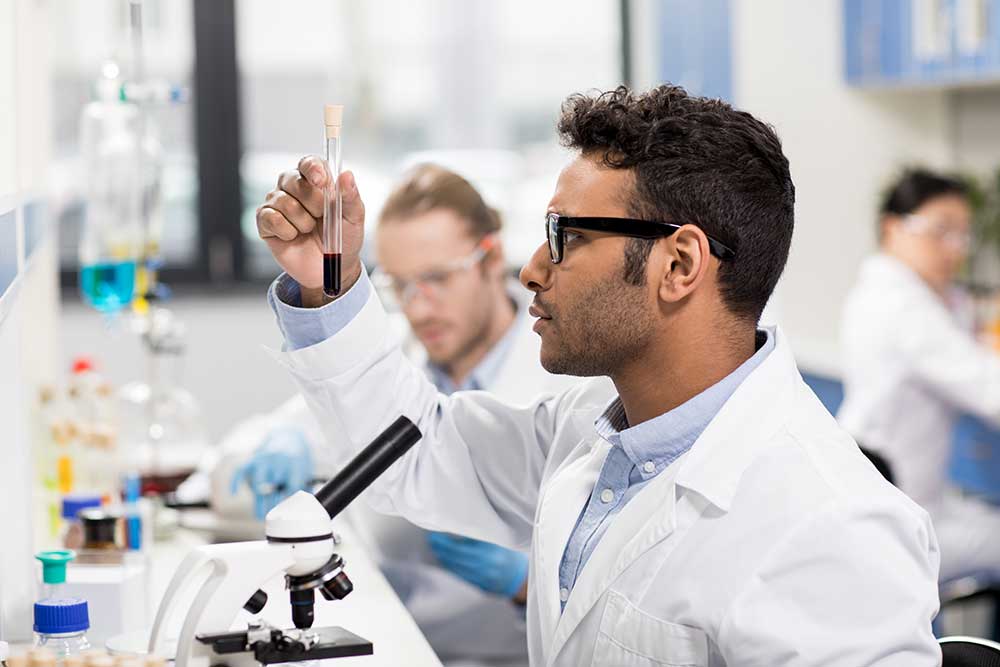Disclaimer: The information on our website is provided for general information purposes only. We make no representations or warranties of any kind, express or implied, about the completeness, accuracy, reliability, suitability or availability with respect to the website or the information contained on our website for any purpose. Any reliance on such information is therefore strictly at your own risk and we are not liable for any damages or losses arising out of or resulting from your reliance on any information contained on our website.
A microbiologist performs scientific experiments to understand how organisms interact with their environment or how they grow and live. Additionally they use laboratory equipment to observe microscopic organisms’ growth, structure, development, and other characteristics. They also explore different bacterias, viruses, algae, fungi, and certain parasites. In fact, they also get to interact and work with technicians and scientists on research teams. Next, watch a video to learn more.
How to Become a Microbiologist

You may wonder how to become a microbiologist. If you have yet to graduate high school and are interested in a career in microbiology, it’s not too early to begin preparing. It would help if you took science, math, computer science, biology, chemistry, physics, and statistics. If you have graduated high school, the next step is earning a bachelor’s degree in microbiology or a similar field.
A bachelor’s degree in microbiology is necessary for an entry-level job as the coursework at your college should include microbiology, biochemistry, or cell biology. Many colleges and universities have programs with biological sciences degrees that include microbiology. Many students with microbiology majors take courses in microbiology genetics, microbiology physiology. They also take environmental microbiology and virology and some elective classes. It is highly suggested that students in this field of study take math, statistics, and computer science subjects, which are essential for complex data analysis.
The undergraduate programs in microbiology have mandatory laboratory requirements that students need before entering the workforce. You can get laboratory experience through internships with potential employers. A Ph.D. is usually expected to carry out independent research. These programs include classwork, laboratory research, and completing a thesis or dissertation. Many graduate students specialize in a subfield, like bacteriology or immunology. They begin careers in postdoctoral research positions while working with experienced scientists, learning about other specialties, and gaining a more comprehensive understanding of related research. Getting an opportunity to publish research findings may be obtainable in postdoctoral positions.
Some students may gain an internship with an employer to further their laboratory experience. For those desiring to work in independent research like in colleges or universities, they would require a Ph.D. Microbiologists with published research in their records may secure a job in a college or university faculty seat. A microbiologist with a Ph.D. can also lead research teams and control the direction and content of projects.
Job Description of a Microbiologist
Now that you know what a microbiologist is and how to become one, let’s go over what a microbiologist does. Microbiologists typically work an average of 40 hour weeks. They work in offices, laboratories, high schools, colleges and universities, or hospitals. If the microbiologist is not in a teaching position, they will most likely work on research teams with other scientists and technicians because of multiple disciplines. For example, they could work with medical and molecular scientists while researching new drugs. You may also work with nurses and physicians in medical laboratories conducting lab experiments to diagnose, prevent, treat, and cure diseases.
Microbiologists isolate and maintain cultures of bacteria for information and other microorganisms. Growing strains of bacteria in various conditions and noting their reactions is another aspect of the job. This is vital as a microbiologist can then identify and classify the microorganisms. A microbiologist may also help develop engineered crops or develop better biofuels.
Some microbiologists are in supervisory positions over teams that can include biological technicians and other employees and check on the accuracy of their work. Preparing technical reports, publishing research papers, and making recommendations based on those findings are part of the job. Therefore, they may also have to present their research data to scientists, nonscientist executives, engineers, colleges, and the public. There are other occupations to research if you’re interested in microbiology, such as biochemist, biophysicist, biological technician environmental scientist, zoologists, wildlife biologist, or mycologist (which is the study of mushrooms).
Article Citations
Bureau of Labor Statistics, U.S. Department of Labor, Occupational Outlook Handbook, Microbiologist.
National Center for O*NET Development. 19-1022.00. O*NET OnLine.

